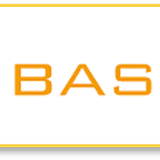Management Success Factors In Managing Restaurant Businesses
DOI:
https://doi.org/10.24912/je.v25i3.684Abstract
Restaurant business owners seek to improve their management by analyzing restaurant business management in Jakarta, Surabaya, Semarang, Bandung, Tangerang and Bekasi. The problem of this research is to find out what factors influence organizational performance. The population of this study were all restaurant business owners (both local and international cuisine) in Jakarta, Surabaya, Semarang, Bandung, Tangerang and Bekasi. The research method used is using non-probability sampling techniques with the purposive sampling method. The number of samples was 421 respondents. The results or findings of this study show that there are 4 research hypotheses, namely the positive influence of dynamic capabilities on organization innovation with an alpha of 10%, the positive influence of organization slack on organization performance with an alpha of 5%, the positive influence of organization performance on organizaton performance with an alpha of 5%, Positive influence of dynamic capabilities on organizational performance mediated by organization innovation with alpha 10%. For the other 9 hypothesis testing resulted in unproven conclusions.
References
Abdullah, I., Rashid, Y. and Umair, T. (2013). Effect of organizational learning and knowledge management practices on organizational performance. Journal of Basic and Applied Scientific Research, 3(5): 34-39.
Abebe, M.A., and Angriawan, A. (2014). Organizational and competitive influences of exploration and exploitation activities in small firms. Journal of Business Research, 67(3):339-345.
Alawamleh, M., Ismail, L.B., Aladwan, K. and Saleh, A. (2018). The influence of open/closed innovation on employees’ performance. International Journal of Organizational Analysis, 26(1):75-90.
Alsabbagh, M. and Khalil, A.H.A. (2017). The impact of knowledge management on organizational learning (An empirical study on the education sector in Damascus city). International Journal of Academic Research in Business and Social Sciences, 7(4): 560-578.
Al-Sa’di, A.F., Abdallah, A.B. and Dahiyat, S.E. (2017). The mediating role of product and process innovations on the relationship between knowledge management and operational performance in manufacturing companies in Jordan. Business Process Management Journal, 23(2):349-376.
Cabrilo, S. and Dahms, S. (2018). How strategic knowledge management drives intellectual capital to superior inovation and market performance. Journal of Knowledge Management, 22(3):621-648.
Ganguly, A., Talukdar, A. and Chatterjee, D. (2019). Evaluating the role of social capital, tacit knowledge sharing, knowledge quality and reciprocity in determining innovation capability of an organization. Journal of Knowledge Management, 23(6):1105-1135.
Haryanto, A.T., Dewi, S.N. and Triono, B.R.M.S. (2019). Marketing and competitive advantages. Jurnal Perilaku dan Strategi Bisnis, 7(2):115-123.
https://lifestyle.okezone.com/accessed : August, 2020.
https://www.posist.com/restaurant-times/restro-gyaan/9-essential-traits-successful-restaurant.html/2020/accessed : July, 2020.
Idarraga, D.A.M. and Marin, J.C.C. (2019). Relationship between innovation and performance : Impact of competitive intensity and organizational slack. RAE-Revista de Administração de Empresas (Journal of Business Management), 59(2):95-107.
King, W.R. (2009). Knowledge management and organizational learning. Annals of Information System, 4.
Kumaravel, V. and Vikkraman, P. (2018). Assessment of knowledge management practices in higher educational institutions in India: A Structural Equation Modeling approach. Int Journal Education Science, Taylor & Francis, 20(1-3):120-136.
Labanauskė, K.B. and Nedzinskas, S. (2017). Dynamic capabilities and their impact on research organizations’ R&D and innovation performance. Journal of Modelling in Management, 12(4):603-630.
Mutahar, A. M., Daud, N. M., Ramayah, T., Putit, L., and Isaac, O. (2017). Examining the Effect of Subjective Norms and Compatibility as External Variables on TAM: Mobile Banking Acceptance in Yemen. Science International, 29(4), 769-776.
Najmi, K., Kadir, A.R. and Kadir, M.I.A. (2018). Mediation effect of dynamic capability in the relationship between knowledge management and strategic leadership on organizational performance accountability. International Journal of Law and Management, 60(2):517-529.
Ngoc-Tan, N. and Gregar, A. (2018). Impact of knowledge management on innovation in higher education institutions : An empirical evidence from Vietnam. Economics and Sociology, 11(3):301-320.
Shiferaw, B., and Molla, T. (2018). Does behavior of clients matter in adoption of internet banking? Evidence from Commercial Bank of Ethiopia. Journal of Economics and International Finance, 10(6), 58-64.
Turulja, L. and Bajgoric, N. (2018). Knowing means existing : Organizational learning dimensions and knowledge management capability. Business System Research, 9(1):1-18.
Wilden, R. and Gudergan, S. (2017). Service-dominant orientation, dynamic capabilities and firm performance. Journal of Service Theory and Practice, 27(4):808-832.
Wu, Y., Wei, Z., and Liang, Q. (2011). Top management team diversity and strategic change : The moderating effects of pay imparity and organization slack. 24(3), 267–281.
Downloads
Published
How to Cite
Issue
Section
License
Copyright (c) 2020 Jurnal Ekonomi

This work is licensed under a Creative Commons Attribution-NonCommercial-ShareAlike 4.0 International License.
This journal provides immediate open access to its content on the principle that making research freely available to the public supports a greater global exchange of knowledge.

This work is licensed under a Creative Commons Attribution-NonCommercial-ShareAlike 4.0 International License.


















